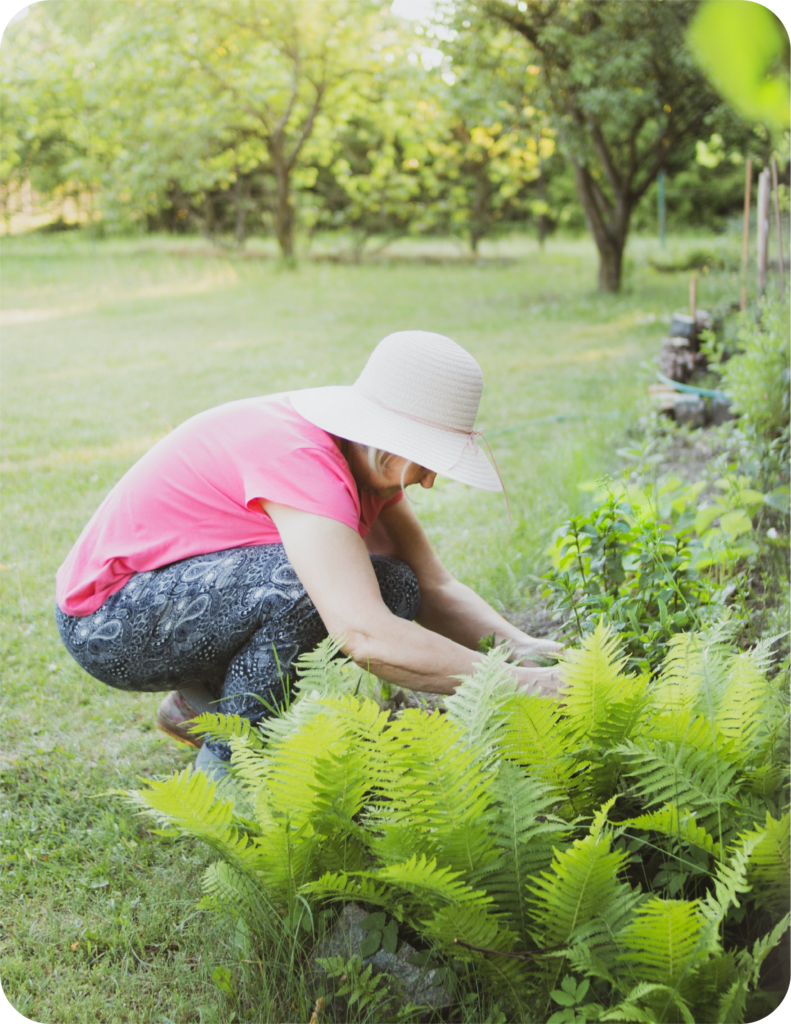The health benefits of gardening – and what plants to grow in our climate
Spring is here, and in the coming weeks we’ll start to see life emerging from the earth here in Saskatchewan. Whether you’re an experienced gardener or just starting to think about planting your first pots, there are many excellent health benefits of gardening. Read on to learn how gardening can improve both your mental and physical health, and to learn what plants to consider for your Saskatchewan garden!
The mental health benefits of gardening
Practicing acceptance
No matter how much preparation or effort you put in, sometimes things just don’t come out as planned. Gardening is a great example – even if you do everything you can to prepare your garden for a healthy season, sometimes unexpected things (like a snowstorm in April) can take their toll. Accepting that, like nature, some things are just out of your control, it can help you to practice acceptance in other areas of your life.
Feeling of accomplishment
Whether you’re planting flowers and foliage or herbs and vegetables, you’ll be able to step back and admire your work. As your plants grow under your care and attention, the feeling of accomplishment that comes from nurturing your garden to life will give your confidence a boost and help build your self-esteem – and also gives you something beautiful to look at all season long.
Playing with dirt is a natural mood booster
You may not believe it, but putting your hands in the dirt can give your serotonin levels a natural boost. Serotonin is your ‘feel-good hormone’ and can help you to regulate your mood as well as your appetite, digestion, learning and memory abilities, and sleep. As you dig, you’ll stir up microbes in the dirt known as mycobacterium vaccae, a substance that can stimulate serotonin production.
The physical health benefits of gardening
 Physical exercise
Physical exercise
You’ll be surprised by how much activity you’re getting in while tending to your garden. You’ll be practicing functional exercise like squatting to deadhead your flowers, stretching your shoulders as you reach to weed through the dirt, or walking back and forth to the compost bin with your discards.
Healthy eating
Beyond just flowers and foliage, there’s a whole world of edible herbs and vegetables you could grow yourself. There’s just nothing like the convenience of snipping fresh herbs to use in your favorite recipe, or taste of a garden carrot that you dug out of the earth with your own hands. Home grown foods can help you save money on groceries, and are full of the nutrients and fibre your body needs.
Don’t have the room to plant a vegetable garden? Herbs can be grown in pots with limited space, like on your balcony!
Gardening Tip: Try putting your freshly-dug produce (like garden carrots) into the washing machine on a gentle rinse cycle! It’ll help you get most of the dirt off your produce without scrubbing for hours.
Strengthening your bones
When your skin is exposed to the sun, your body naturally produces Vitamin D. This vitamin helps your body absorb calcium, which is essential for forming strong bones, and keeping them that way. When you’re planning to be out in the sun, don’t forget to drink lots of water, wear a hat, and apply sunscreen to keep your body safe from the sun’s UV rays.
What to grow in Saskatchewan
The University of Saskatchewan has an amazing resource of plants that will grow well in our Saskatchewan climate. Use their tool to find which food, flowers, or trees and shrubs would do best in your growing environment.
Growing annuals
Any plant that won’t survive our winters is considered an annual. In the case of flowers, they tend to flower more vigorously and be smaller in size. Check out what the best fit for your garden might be here.
Growing perennials
Depending on where you are in the province, Saskatchewan’s hardiness zones range from 4a in the Southern region up to 0b in the Northern region. This information is most important when you want to grow perennial plans, which are plants that will survive the winter and come back year after year. Find out which perennials will grow well for you here.
Growing food
If you’re ready to try your hand at growing your own food, check out this advice from the U of S to learn which vegetables, herbs, fruits and more will do well in your garden.
